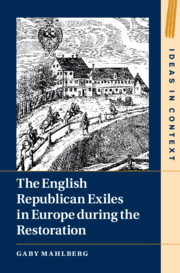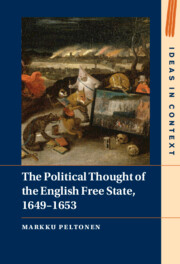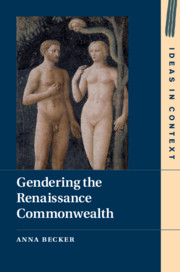The English Republican Exiles in Europe during the Restoration
The Restoration of the Stuart monarchy in 1660 changed the lives of English republicans for good. Despite the Declaration of Breda, where Charles II promised to forgive those who had acted against his father and the monarchy during the Civil War and Interregnum, opponents of the Stuart regime felt unsafe, and many were actively persecuted. Nevertheless, their ideas lived on in the political underground of England and in the exile networks they created abroad. While much of the historiography of English republicanism has focused on the British Isles and the legacy of the English Revolution in the American colonies, this study traces the lives, ideas and networks of three seventeenth-century English republicans who left England for the European continent after the Restoration. Based on sources from a range of English and continental European archives, Gaby Mahlberg explores the lived experiences of these three exiles - Edmund Ludlow in Switzerland, Henry Neville in Italy, and Algernon Sidney - for a truly transnational perspective on early modern English republicanism.
- Vividly connects English political thought with the European experience
- Offers an accessible history of seventeenth-century English republicanism with a study of the exiles' lived experience
- Draws on previously unpublished primary sources from a broad range of English and continental European archives
Reviews & endorsements
'A significant contribution to our understanding of the physical, mental and intellectual worlds inhabited by exiles such as Sidney, Ludlow and Neville … What Mahlberg's study shows is the importance of transnational, intercontinental networks for the survival and dissemination of heterodox ideas, and she demonstrates that these networks helped mitigate against an 'experience of defeat' for the exiled republicans-rather, instead, a patient and intellectually fertile experience of waiting for their time to come again.' Matthew Jenkinson, English Historical Review
'The appealingly written book continues the trend in British historiography of recent years to free English and British history from its insular, narrow and/or Atlantic orientation and instead to link it more closely with continental European developments. This includes the political and, above all, the religious-denominational conditions, which the author takes a convincing look at. The work therefore opens up exciting insights into the mixed relationships between religion and politics, exemplified by the living environments of three fascinating personalities.' Alexander Schunka, Sehepunkte (translated from German)
Product details
October 2020Hardback
9781108841627
300 pages
160 × 235 × 25 mm
0.62kg
Available
Table of Contents
- Introduction
- Part I. Networks and communities:
- 1. Cross-channel connections
- 2. Local support, confessional and cross-confessional connections
- Part II. Exiles, assassins and activism:
- 3. The nature of exile and its dangers
- 4. Plots, conspiracies and ideas
- Part III. Works of exile:
- 5. Ludlow's protestant vision
- 6. Sidney's rebellious vision
- 7. Neville's utopian vision
- Epilogue
- Bibliography
- Index.






